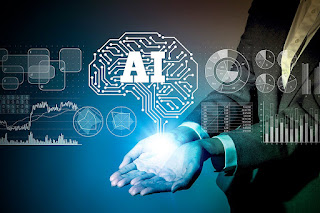Advantages of AI
- Increased Efficiency: AI systems can process large amounts of data quickly and accurately, which can help to increase efficiency and productivity in various industries.
- Improved Accuracy: AI systems can be trained to identify patterns and make predictions, which can help to improve the accuracy of decisions and predictions.
- Automation: AI systems can automate repetitive tasks and improve the overall work flow of a company, thus reducing the need for manual labor.
- Personalization: AI-powered systems can analyze large amounts of data to personalize products and services to meet the needs of individual customers.
- Cost Savings: By automating repetitive tasks and increasing efficiency, AI can help to reduce costs for businesses.
- Predictive Maintenance: AI systems can analyze data from various sources to predict when equipment or systems may need maintenance or repairs, which can help to prevent costly downtime.
- Intelligent Automation: AI can be used to automate repetitive, mundane and time-consuming tasks, freeing up human workers for more valuable and creative work
- Improved Safety: AI-controlled systems can be used to monitor and control dangerous environments, such as factories and mines, which can help to improve safety for workers.
These are just a few examples of the many advantages of AI technology, there are many other potential benefits of AI depending on the specific application and industry.
Disadvantage of AI
Artificial Intelligence (AI) has the potential to bring many benefits, but there are also some potential downsides and challenges to consider. Some of the main disadvantages of AI include:
- Job Loss: AI systems can automate many tasks that were previously done by humans, which can lead to job loss and unemployment.
- Bias: AI systems are only as unbiased as the data they are trained on. If the data used to train an AI system is biased, the system will also be biased.
- Limited capabilities: AI systems are limited to the tasks they have been specifically designed to perform. They can struggle with tasks that require common sense or creativity.
- Reliance on technology: AI systems can become critical to the functioning of a company or organization, which can make the organization vulnerable if the AI system fails or is compromised.
- Privacy and security risks: AI systems can collect and analyze large amounts of personal data, which can raise concerns about privacy and security.
- High cost of development and maintenance: Developing and maintaining an AI system can be expensive, and it may require a large amount of data and computing power.
- Lack of transparency: AI systems can be difficult to understand and interpret, which can make it hard to know how they arrived at a decision.
- Dependence on data: AI systems require large amounts of high-quality data to function properly. Without access to this data, the AI system cannot function.
It's important to keep in mind that, the disadvantages of AI will vary depending on the specific application and industry, but it's important to weigh the pros and cons before implementing any AI solution.
How to use AI
 |
| How to makr ai img |








